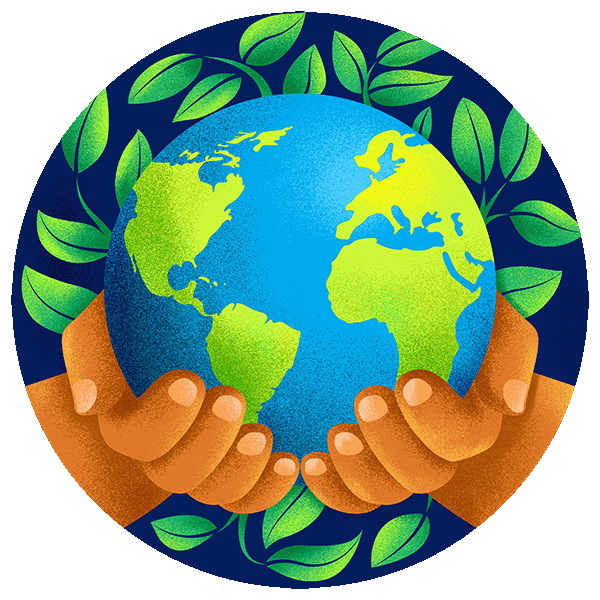
COP27 - Great Grandmother Mary - Without The Rights Of Nature There Can Be No Us
Human beings have rights, but what about the rights of nature? Great Grand Mother Mary talks to us about the rights of nature. Cultural Survival attended COP27 in Sharm El Sheikh, Egypt.
Produced by Shaldon Ferris (Khoisan)
Interviewee:Great GrandMother Mary (Anishinaabe)
Music: "LIBRES Y VIVAS by MARE ADVETENCIA, used with permission.
"Burn your village to the ground", by The Halluci Nation, used with permission.
COP27 - Angel Levac Brant: Youth Voices Are Often Under Represented
In this radio interview, we spoke to Angel Levac Brant who explains that there are few voices from Indigenous youth when it comes to fighting climate change.
Producer: Dev Kumar Sunuwar (Sunuwar)
Interviewee: Angel Levac Brant (Tyendinaga Mohawk)
Music: "LIBRES Y VIVAS by MARE ADVETENCIA, used with permission.
"Burn your village to the ground", by The Halluci Nation, used with permission.
COP27 - Greame Reed On The Past And Future Of COP
In this radio program, International Indigenous Peoples Forum on Climate Change co-chair Graeme Reed talks to us about the achievements of Indigenous Peoples at previous COP meetings, and what he expects from COP27.
Producer: Shaldon Ferris (Khoisan)
Interviewee: Graeme Reed (Anishinaabe)
Music: "LIBRES Y VIVAS by MARE ADVETENCIA, used with permission.
"Burn your village to the ground", by The Halluci Nation, used with permission.
COP27 - Grace Balawang: Indigenous Peoples Need Direct Support To Restore Loss And Damage
In this interview, Cultural Survival's Dev Kumar Sunuwar speaks to Grace Balawang and she explains how direct access to funding for Indigenous Peoples will assist in resolving the problems that come about as a result of loss and damage created by climate change.
Producer: Dev Kumar Sunuwar (Sunuwar)
Interviewee: Grace Balawang (Kankaney Igorot)
Music: "LIBRES Y VIVAS by MARE ADVETENCIA, used with permission.
"Burn your village to the ground", by The Halluci Nation, used with permission.
COP27 - Hindou Oumarou Ibrahim: We Are Here To Share Our Solutions
At the United Nations climate change conference in Paris, COP 21, governments agreed that mobilizing stronger and more ambitious climate action is urgently required to achieve the goals of the Paris Agreement. Action must come from governments, cities, regions, businesses and investors. Everyone has a role to play in effectively implementing the Paris Agreement.
The Paris Agreement formally acknowledges the urgent need to scale up our global response to climate change, which supports even greater ambition from governments.
COP27 -Tunga Rai It Is Time To Implement The Paris Agreement
The International Indigenous Peoples Forum on Climate Change, the official caucus for Indigenous Peoples participating in the UNFCCC processes, which held its preparatory meeting on 5th and 6th November prior to UNFCCC COP27 and had a discussion on a range of issues relating to climate change to come into agreement specifically on what Indigenous Peoples will be negotiating for, in specific UNFCCC processes.
COP27 - Pablo Mis: Investment Must Find Its Way Into The Hands Of Indigenous Peoples
A Just Transition for Indigenous Peoples is one that centers a human rights approach and the protection of biodiversity and advances Indigenous sovereignty and self-determination in all endeavors relating to the building of green economies. Doing this will require that all stakeholders observe and fully implement the UN Declaration on the Rights of Indigenous Peoples and the right to self-determination and Free, Prior, and Informed Consent in all decision-making.
COP27 - Lisa Qiluqqi Koperqualuk: Our Cultures Are Tied To Our Environment
Indigenous Peoples are not just stakeholders; Indigenous Peoples are rights holders. Cultural Survival reiterates the importance of Indigenous Peoples’ access to direct participation at the same negotiation tables as nation states at the UNFCCC COP27, with the right to have a voice and vote, and the inclusion of references to human and Indigenous Peoples’ rights in all documents.
Cultural Survival also attended COP 27, and we spoke to Indigenous delegates at the Conference.
In this interview, we spoke to Lisa Qiluqqi Koperqualuk.
COP 27 - Andrea Carmen On Indigenous Peoples and Climate Change
Indigenous Peoples are not just stakeholders; Indigenous Peoples are rights holders. Cultural Survival reiterates the importance of Indigenous Peoples’ access to direct participation at the same negotiation tables as nation states at the UNFCCC COP27, with the right to have a voice and vote, and the inclusion of references to human and Indigenous Peoples’ rights in all documents.
Cultural Survival spoke to Andrea Carmen of the International Indian Treaty Council about Indigenous Peoples and Climate Change.
Producer: Shaldon Ferris (Khoisan)
Interviewee: Andrea Carmen (Yaqui)
COP 27 - Gunn-Britt Retter on Green Colonialism
In the transition to the so-called green economy, Indigenous Peoples are facing a new wave of extractivism for transition minerals such as copper, nickel, cobalt, and lithium, which are key in battery development. These projects are promoted as “green” because they aim to supply minerals used in renewable energy and electric vehicles. However, these mining projects risk replicating the same harms of the fossil fuel economy: threatening Indigenous Peoples’ rights and territories and destroying biodiverse ecosystems.
